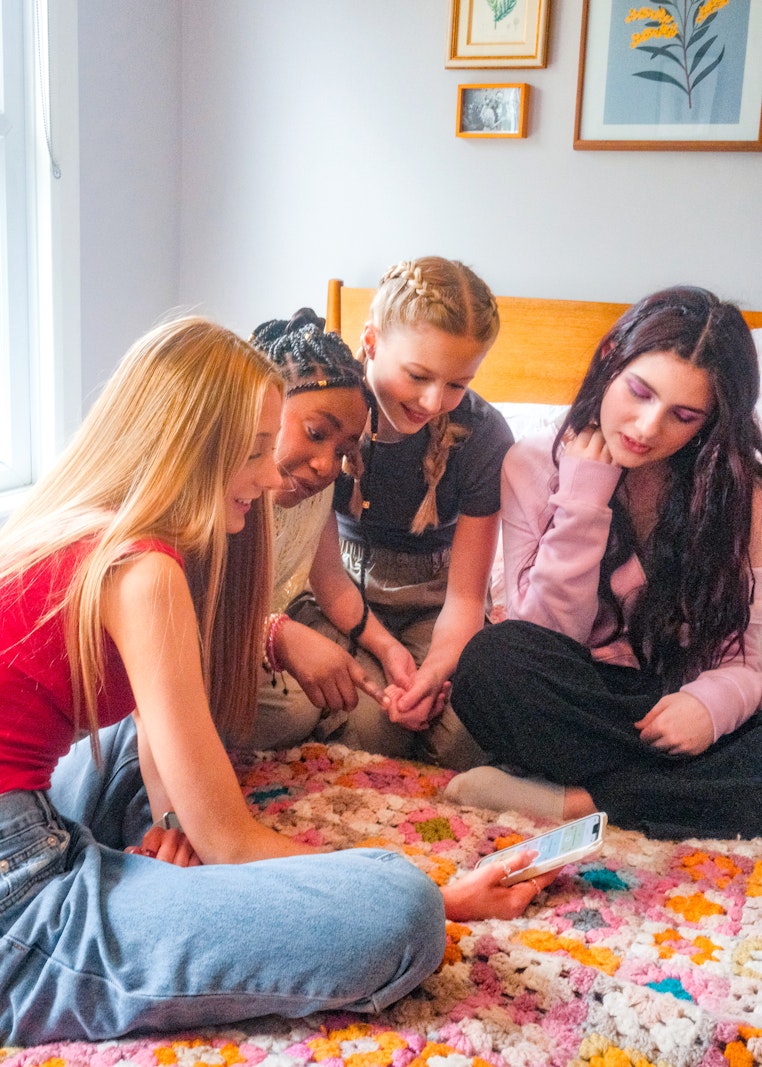
How does "we are luna" approach PSHE
And why is PSHE so important?

Personal, Social, Health, and Economic (PSHE) education is essential for preparing students for life in today’s complex world.
The main goals of PSHE are to give young people the knowledge, skills, and understanding they need to lead confident, healthy, and independent lives. It helps them become responsible and active members of society by covering a wide range of topics, including relationships, mental health, physical wellbeing, and economic understanding.
PSHE's impact on students' lives
PSHE education isn't just another school subject, in fact it's compulsory in the UK; it's a vital part of a child's development. It helps students handle the challenges of modern life, from managing their mental health to understanding financial responsibility.
By building resilience and encouraging informed decision-making, PSHE empowers students to face challenges confidently and make positive contributions to society.
How luna approaches PSHE
luna’s content is medically-verified and created in line with the secondary school PSHE curriculum, and so is suited for anyone aged 11-18, supporting their personal growth through puberty and beyond.
As young people receive smartphones at increasingly younger ages, luna provides a safe, educational space to satisfy their curiosity and address their concerns responsibly.
We also take the handling of sensitive topics very seriously, and have worked with safeguarding experts and medical professionals to create a safe learning environment.
Here’s how we apply the PSHE Association guidelines in our app:
Creating a safe learning environment
- Ground rules: we establish clear guidelines to ensure questions asked in luna’s Q&A feature “Ask luna” are entirely anonymous and do not contain information that may harm the community, for example swearing. The app is a closed community – no one can talk to each other – which protects young people from feeling singled out and enables them to have confidence to learn what they need in private
- Balanced information: our content provides balanced information and multiple viewpoints, we only take a stance in cases for example discrimination or bullying
Managing sensitive discussions
- Neutral stance: luna presents information based on medical and scientific facts, avoiding personal biases. We give young people options and pathways instead of definitive solutions, ensuring all responses are age-appropriate and verified by experts
- Confidentiality: users remain anonymous
Ground rules and handling tricky questions
- Openness and respect: luna maintains a non-judgmental and empathetic tone, we’re the “Empathetic Older Sister”, guiding teens towards positive behaviours and decision-making
- Anonymous questions: our platform allows for fully anonymous questions, ensuring users feel safe to ask anything without fear of judgement
- Factual and age-appropriate responses: with an average response time of 24 hours, answers are reviewed in this time to ensure they are safe and medically verified
Online safety and critical evaluation
- Combating fake news: luna educates users on identifying false information and avoiding risky online interactions
- Dealing with online challenges: our content addresses online bullying, pressure to distribute nude images and safe socialisation online, helping teens develop strategies to manage these issues effectively
Signposting support
luna is not a crisis service but a preventative educational tool to subsidise PSHE education and cement learnings – we guide teens to reliable sources like Childline, Shout and NSPCC when they need personalised support beyond our platform.
We also work closely with Dr. Katie Malbon, to develop our guidelines on signposting and managing difficult questions. Dr. Katie is a General Paediatric Consultant and Lead for Acute CYP Mental Health at Imperial College NHS Healthcare Trust. She’s been named doctor for safeguarding, and is currently lead for adolescents and paediatric mental health. She was also safeguarding trustee to the Girls' Day School Trust during the pandemic.
So, to conclude…
PSHE education is crucial for preparing young people for life’s challenges.
At luna, we are dedicated to delivering this education in a way that is safe, supportive, and effective – by following the best practices outlined by the PSHE Association and leveraging expert input, luna helps students develop the resilience, knowledge, and skills they need to thrive.
If you’ve been looking for an antidote to the misinformation and negativity shared on social media or forums, you can get luna for your teen via our luna premium page. Your teen can also search “we are luna” in App Stores to download the app, and then purchase premium within the app with your permission.
How we created this article:
luna's team of experts comprises GPs, Dermatologists, Safeguarding Leads and Junior Doctors as well as Medical Students with specialised interests in paediatric care, mental health and gynaecology. All articles are created by experts, and reviewed by a member of luna's senior review team.
Sources:
PSHE Association "Handling complex issues and creating a safe learning environment"
https://pshe-association.org.uk/guidance/ks1-5/handling-complex-issues-safely-classroomDepartment of Education "Personal, social, health and economic (PSHE) education"
https://www.gov.uk/government/publications/personal-social-health-and-economic-education-pshe/personal-social-health-and-economic-pshe-educationFind out about trends when your teen does
Sign up to our parent newsletter for emails on the latest teen trends, insights into our luna community and to keep up to date
By signing up, you are agreeing that we can use your email address to market to you. You can unsubscribe from marketing emails at any time by using the link in our emails. For more information, please review our privacy statement.